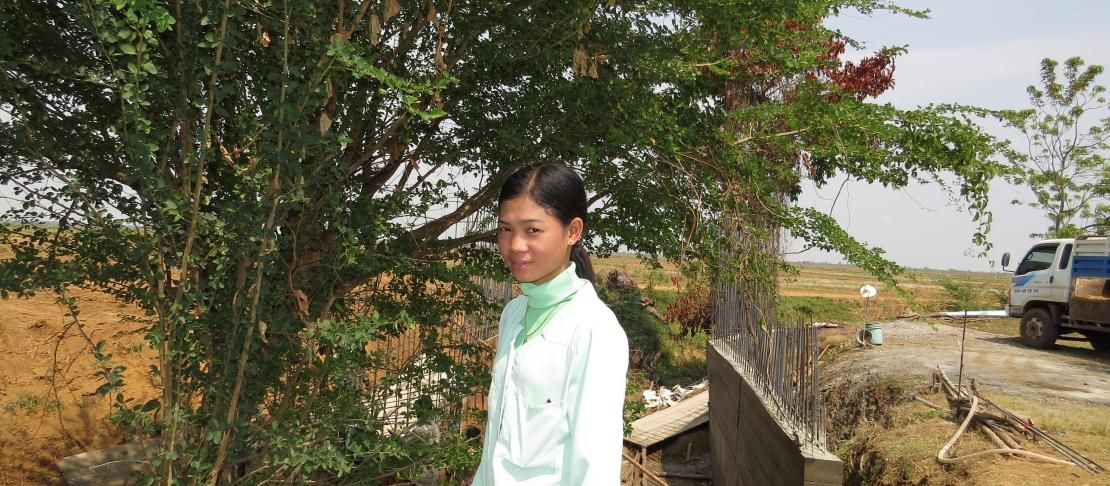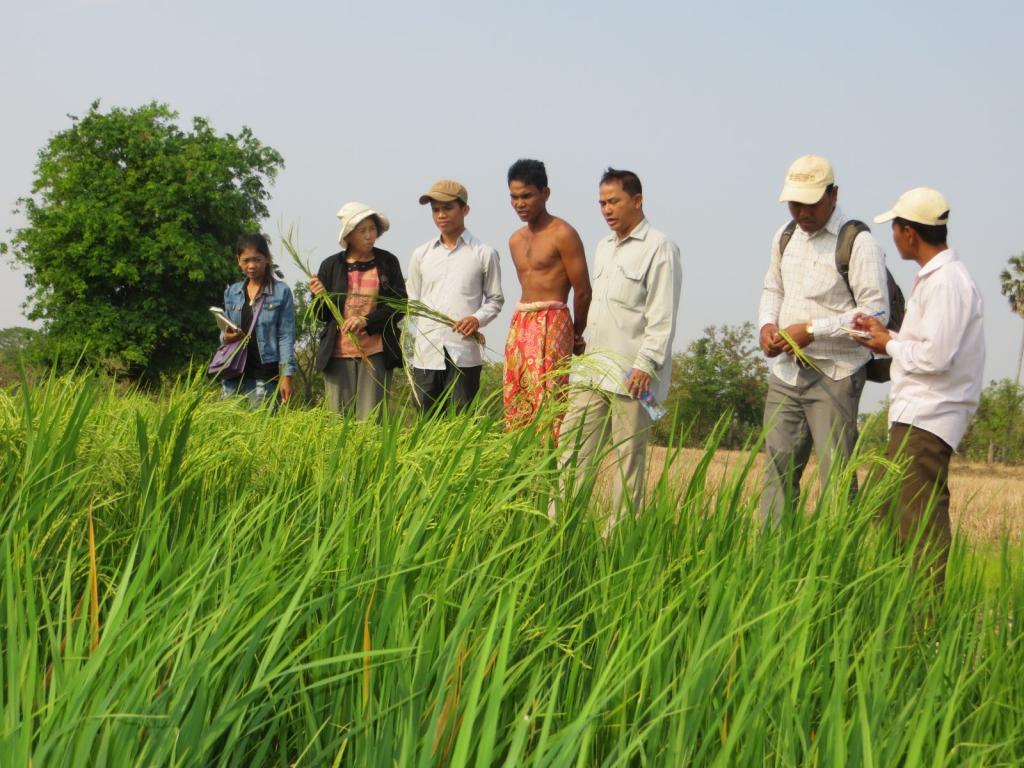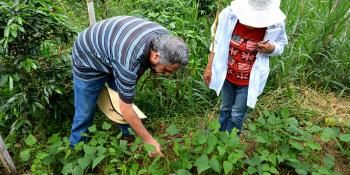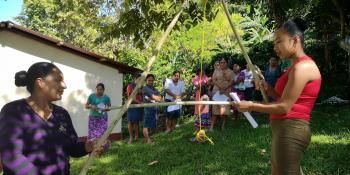Working with women farmers to make Cambodian communities “Plantwise”

Greater involvement of women in plant clinics has improved the climate resilience of the farmers in Rohal Suong village, Cambodia.
Women farmers play a critical role in agricultural production and food security, as well as household welfare in most Southeast Asian countries. According to a Census of Agriculture in Cambodia in 2013, of the 82% of Cambodians engaged in the agriculture sector, at least half of them were women.
Female youth and women, however, have limited access to education, agricultural extension services and social events, as they often have low education backgrounds, and are frequently busy with household activities and other unpaid work. They are historically underrepresented in agriculture decision-making and community leadership as well.
Agricultural development projects are now seeking to increase women’s involvement. The CGIAR Research Program on Climate Change, Agriculture and Food Security (CCAFS), aims to improve gender equality and women farmers’ decision-making in agriculture through the establishment of Climate-Smart Villages (CSVs). Rohal Suong Village in Battambang, Cambodia is one of the six CSVs in Southeast Asia.
As such, the Rohal Suong CSV has emphasized the inclusion of women farmers in its activities and strategies, such as the Plant Clinic. Operating since June 2016, it is a meeting place where plant advisors and assistants help farmers who are faced with issues of plant pests and diseases. The Clinic has been supported by WorldFish and Center for Agriculture and Bioscience International Southeast Asia (CABI-SEA). Plant advisors and assistants, who are trained through CABI’s Plantwise program, provide diagnoses, treatment advice and recommendations to farmers. Women farmers are encouraged to join the program.
Training and field practices on rice pest and diseases provided by Cambodia's General Directorate of Agriculture and CABI's Plantwise program. Women farmers join the program. Photo: Dyna Eam (WorldFish)
The Plant Clinic is currently led by plant advisors from Battambang Provincial Department of Agriculture and Aphivat Strey (AS), a local NGO, and supported by plant assistants. Plant assistants who are recruited from local farmers play an important role in engaging local farmers to bring their crop issues to the clinic and also in following up with client farmers.
One woman farmer, Ms Savet, was recruited to join the Plant Clinic as a plant assistant. Through her involvement in the project, she has learned several things, such as plant disease identification, plant treatment, and community engagement. She has also had more opportunities to work closely with other community committees and to deliver services to local farmers, particularly other women. Ms Savet was not only able to help local farmers to improve their plant management technique, but has also applied the techniques and treatment methods she learned on her own farm.
I am so happy to work as a plant assistant because I have learned many things about plant disease, pest and treatment methods from the plant advisers and trainings, such as training in Phnom Penh. Now I can provide the advice on some plant diseases to my villagers,” said Ms Savet.
As a result of her experience in the project, Ms Savet has been recruited as an agricultural extension worker for her commune. Now, she is organizing groups of community members for an agricultural demonstration project run by the Battambang Provincial Department of Agriculture, Forestry and Fisheries, and the Agriculture Services Programme for Innovation Resilience and Extension (ASPIRE). ASPIRE is a program of the Ministry of Agriculture, Forestry, and Fisheries, and is funded by the International Fund for Agricultural Development.
I thought that I was recruited as a commune extension worker because I could answer well the questions from examination committees, actually this knowledge came from my experiences at Plant Clinic,” added Ms Savet.
She is now trying to understand the common and different needs of women and men famers in agriculture. Ms Savet is keen to learn more about agricultural technologies and extension service methods, and to transfer her knowledge to her villagers.
Engaging local farmers through the Plant Clinic and extension work is an approach that has helped to successfully build local farmers’ capacities and also help local farmers, particularly women farmers, to get better access to agricultural services. In doing so, the project has helped improve the livelihoods of farming households and increase the resilience of agriculture-dependent communities.
Read more:
- Plant clinic established in Cambodia Climate-Smart Village to address crop pests
- Plant doctors to the rescue in integrated pest management
- Cambodia launches a Climate-Smart Village
Eam Dyna is a researcher with WorldFish, working on the Climate-Smart Villages.




